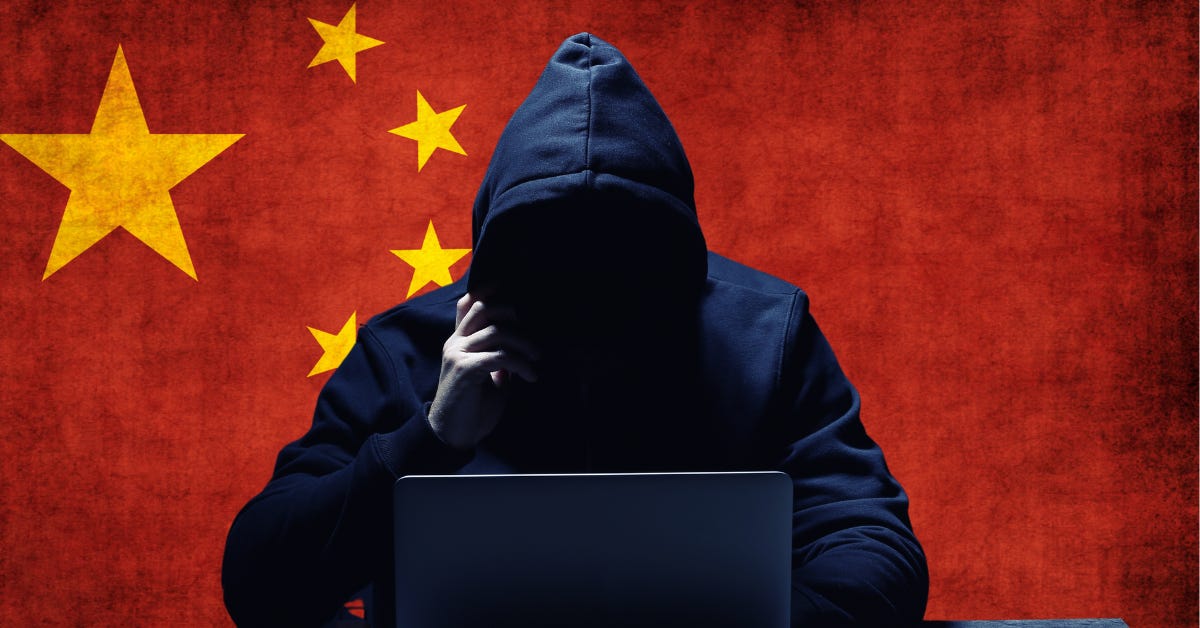UnitedHealthcare and the Dane-geld
"We never pay any-one Dane-geld, No matter how trifling the cost; For the end of that game is oppression and shame, And the nation that plays it is lost!"
Disclosure: I am a software engineer for a company that provides financial and document management services for health insurance and healthcare providers. We work in collaboration with UnitedHealthcare and Optum. I was not directly part of my company’s nor UnitedHealthcare’s response to the hack. The opinions expressed in this article are my own and do not represent the opinions of my employer.
The Rudyard Kipling poem Dane-geld is a commentary on the historical extortion the Danes would use against Anglo-Saxons. The Danes would demand that the Anglo-Saxons pay them money (the Dane-geld) or be attacked. When the Anglo-Saxons would invariably pay the Danes to avoid conflict, the Danes would come back and make the same demand. Over the course of many centuries, the Danish Vikings collected a large bounty from their victims and went on pillaging and conquering unhindered. The poem and its history are instructive for modern American foreign policy discussions.
On February 21, 2024, UnitedHealth discovered that they had become a victim of a cyberattack. They reported this to all of the proper authorities and began taking immediate action to restore their systems. UnitedHealth Group is among the largest providers of health insurance and healthcare services in the United States. It is a multinational company with nearly half a trillion dollars in revenue. They also have half a century of experience maintaining a secure system that provides invaluable services to countless people. The cyberattack was a Big Deal™ and had immediate and long lasting impact across the country in pharmacies and hospitals. The financial impact alone could be as much as $100 million per day because of the inability of UnitedHealth to process payments to hospitals and other providers. As of this writing, UnitedHealth has not fully restored its system.
In their report to the SEC, UnitedHealth stated that “a suspected nation-state associated cyber security threat actor had gained access” to parts of their system. Those claiming credit for the attack may be tied to the Chinese government. It is not news that foreign-based, state-sponsored cyber criminals target large American companies for obscene ransoms. Foreign adversaries use proxies to target American companies and American infrastructure. In short, America is under attack.
In 2001, President George W. Bush was focused on domestic reforms—Economic Growth and Tax Relief Reconciliation Act of 2001 (June 2001) and No Child Left Behind Act (Dec 2001)—but many of his long-term plans, including entitlement reform, were put aside to focus on the War on Terror and Operation Iraqi Freedom. After the September 11th attack on America, there was a renewed focus on foreign policy. America had maintained her status as the dominant—perhaps even sole remaining—superpower throughout the 90s under President Clinton. After the USSR collapsed, American military dominance remained globally.
Over the last 15 years, American foreign policy has shifted. Under President Barack Obama, America took a more globalist and diplomatic stance—Joint Comprehensive Plan of Action—even in the face of growing threats. Although President Donald Trump at times—perhaps under the influence of the likes of Nikki Haley and John Bolton—took a more hawkish view of foreign policy, he also attempted to arrange a lasting peace with North Korea and can take credit for the Abraham Accords. In his haste to end wars, President Trump is responsible in part for the disastrous exit from Afghanistan that was completed under President Joe Biden. President Biden recruited many of the same foreign policy experts from the Obama Administration and has continued pursuing the previous administration’s goals.
Over the last three Presidents, America has taken either an isolationist or globalist view, and the results have been disastrous for Americans and American companies. If either Joe Biden or Donald Trump are elected in November, we can expect things to get worse. Isolationist policies like tariffs and pulling out of international treaties open America to attacks from abroad and leave us without the support of allies. A President who tells our allies he would allow them to be invaded unless they pay more money is not a President who can rely on the help of those same allies when America is attacked. On the other side, a President who does nothing when Americans are kidnapped by a known terrorist organization is not a President who can be relied on to take meaningful action against our enemies. Make no mistake: America has enemies who are hellbent on destroying us. Russia, China, and Iran are not potential allies or good-faith negotiating partners. We know they are actively working through proxies and even directly to subvert American influence and power. They are opposed to everything the West stands for and despise many of the foundational ideals American democracy is founded on. We cannot pretend they can be negotiated with or ignored.
Help us to continue to provide a platform for thought-provoking content.
When America projects weakness abroad, American lives and American livelihoods are endangered. When everyone who messes with America never finds out what happens, more people will begin to test us. Al Qaeda, famously, found out what Americans were capable of when we invaded Afghanistan and, eventually, hunted down and killed Osama bin Laden. Although there is a lot to criticize about the US involvement in the Middle East, overall, things were better when we had a broader presence in the region. American influence—both military and civilian—has historically been beneficial for people, especially traditionally marginalized groups.
America's shrinking from responsibilities, real and imagined, is detrimental to the orderly functioning of the world. America cannot shrug off direct attacks against Americans or allies because of focus groups or some idealized vision of a global community. America cannot turn inward and ignore the growing threats to democracy and freedom. Globalism isn’t America First, but neither is isolationism. The isolationism of the MAGA and Libertarian sects of American politics is just as dangerous as the idealistic globalism of Barack Obama. America should be a leader in the world, and sometimes, that means demonstrating through brute force that we will not tolerate attacks on our allies or our people.
This recent hack of UnitedHealthcare and the alarming number of other American corporations and agencies are only the beginning unless American foreign policy takes a stronger stance against this kind of aggression. To be clear, UnitedHealthcare has done everything right. They notified the authorities, their partners, and their members immediately and took immediate action. However, the United States government has a responsibility to ensure that those responsible for these attacks—from individual hackers to state sponsors—cannot continue with impunity.
American weakness on the world stage, and our recent and likely future President’s inability or lack of desire to take a strong stance against aggression from the likes of Russia, China, and Iran, will encourage more hackers and enable more of these kinds of catastrophes. America needs a strong leader who understands that we are under attack and that we need reliable allies. American deterrence and influence are only as effective as the willingness of our leaders to make those who test us pay for their transgressions. The safety of American lives and the security of American livelihoods are at stake. Until America shows the world that attacks, both cyber and material, against Americans will not go unpunished, we will continue to have to pay the Dane-geld, because “we’ve proved it again and again, That if once you have paid him the Dane-geld, You never get rid of the Dane.”
Thaddeus Winker received his Bachelor’s degree from Xavier University, where he studied the classics and theology, and received his Master’s degree in Bible Studies from The Catholic University of America. He currently works as a Senior Software Engineer. @Thadypus





As a historian, I confess bias to any article that begins with history to make its point. That being said this is a great piece on the seemlngly logical position to focus domestically and live and let live. From the Lusitania to Pearl Harbor, 9/11 and Thaddeus' point about China says that will not happen.